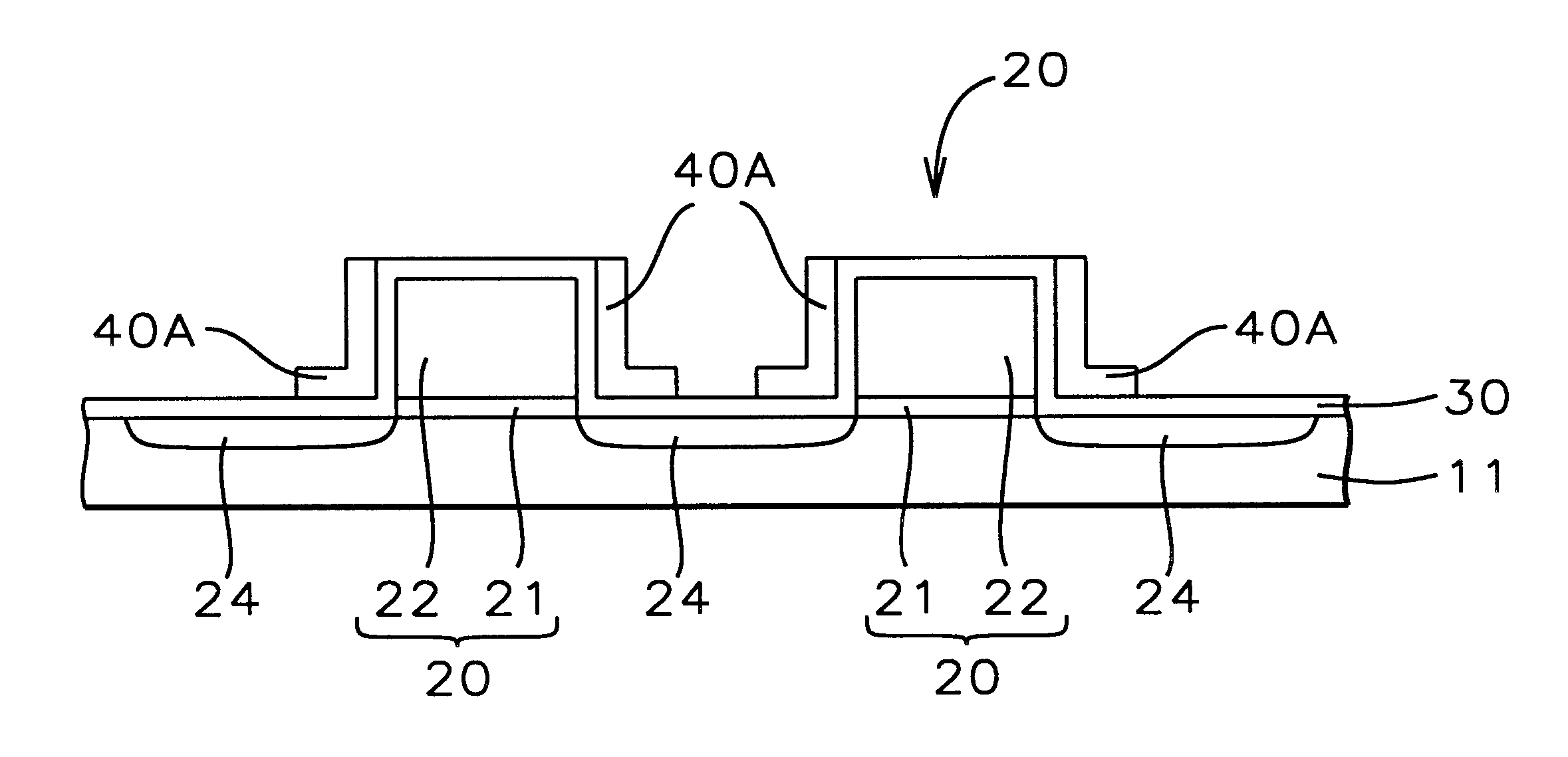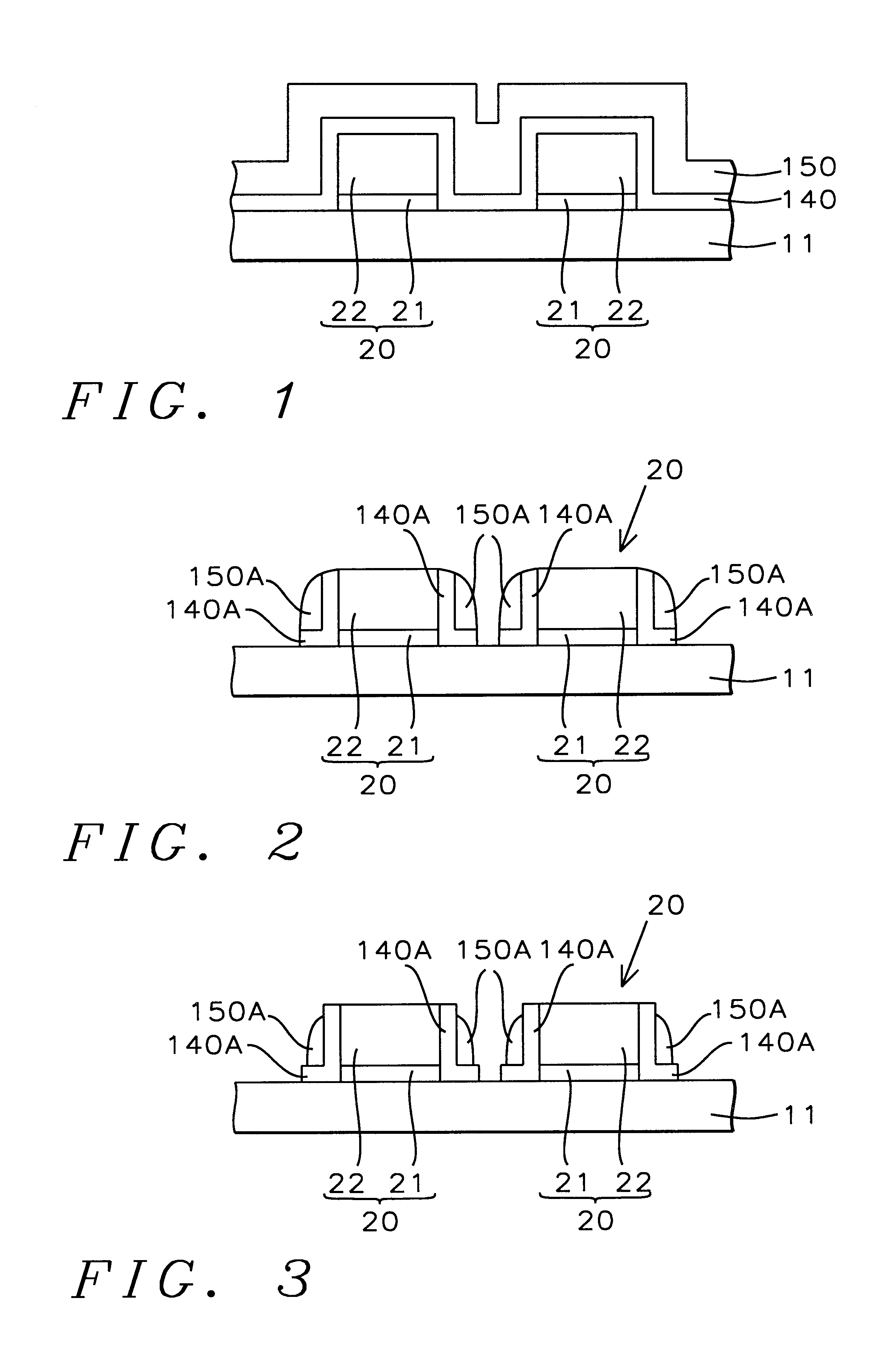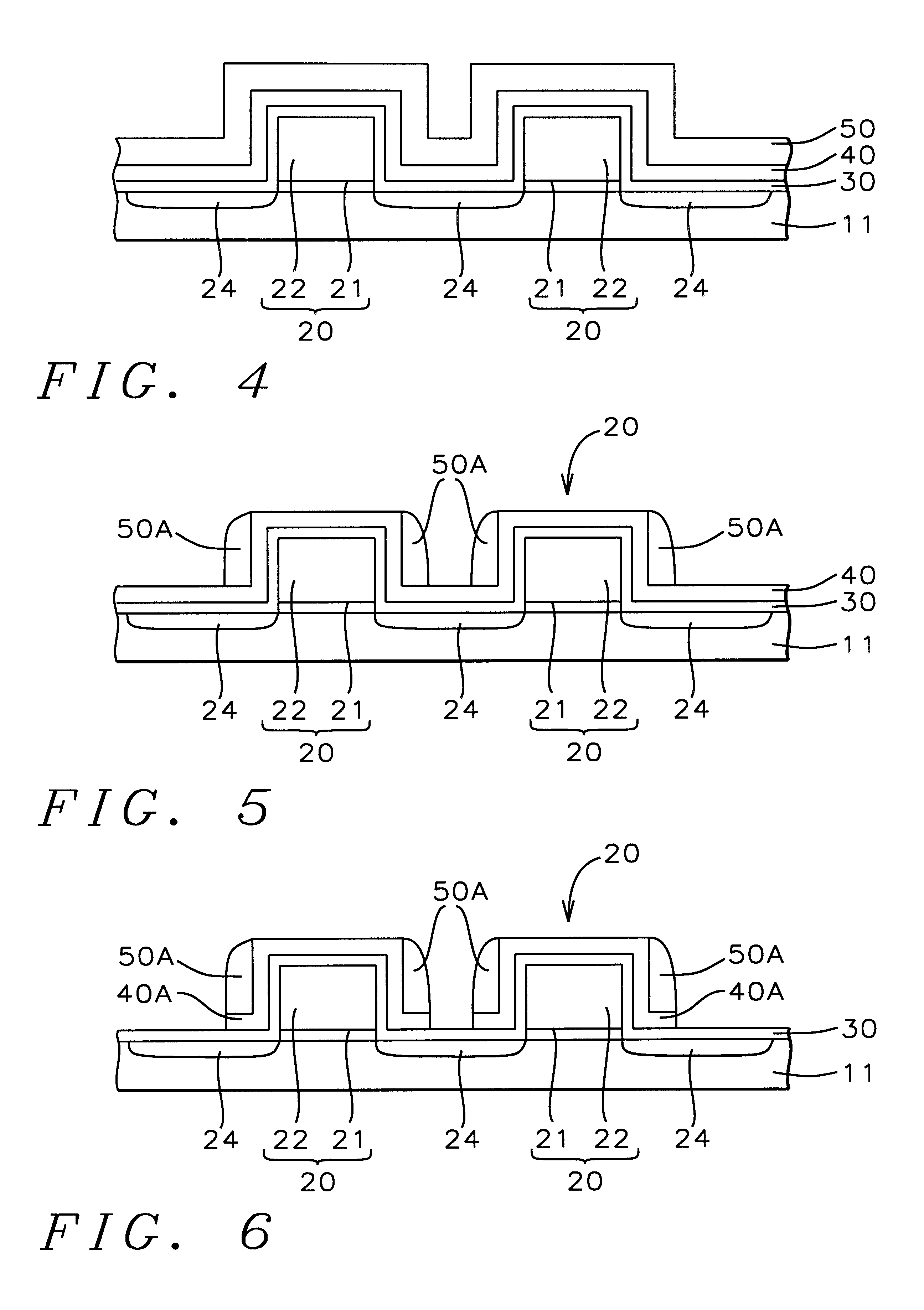Method for forming an L-shaped spacer using a disposable polysilicon spacer
a technology of polysilicon and spacer, which is applied in the manufacturing of semiconductor/solid-state devices, electrical devices, transistors, etc., can solve the problems of affecting the shape and size of the spacer, the top oxide portion of the spacer cannot be easily removed without damaging the oxide isolation structure, and the spacer shape and size is inconsistent across the ic and between the i
- Summary
- Abstract
- Description
- Claims
- Application Information
AI Technical Summary
Benefits of technology
Problems solved by technology
Method used
Image
Examples
Embodiment Construction
A preferred embodiment of the present invention is described with reference to FIGS. 4 through 7. The preferred embodiment provides a method for forming an L-shaped spacer using a disposable polysilicon top spacer. The present invention provides a consistently controllable opening which is adequate for good gap-filling characteristics. Also, the present invention provides uniform L-shaped spacers, resulting in symmetrical transistors.
Referring to FIG. 4, the preferred embodiment of the present invention begins by providing a semiconductor structure (11). Semiconductor substrate (11) is understood to possibly include a substrate comprising a wafer of semiconductor material such as silicon or germanium or a like substrate structure such as silicon-on-insulator (SOI) as is known in the art. Semiconductor structure (11) should be understood to possibly further include one or more conductive and / or insulating layers and passive and / or active devices formed on or over said substrate. The ...
PUM
 Login to View More
Login to View More Abstract
Description
Claims
Application Information
 Login to View More
Login to View More - R&D
- Intellectual Property
- Life Sciences
- Materials
- Tech Scout
- Unparalleled Data Quality
- Higher Quality Content
- 60% Fewer Hallucinations
Browse by: Latest US Patents, China's latest patents, Technical Efficacy Thesaurus, Application Domain, Technology Topic, Popular Technical Reports.
© 2025 PatSnap. All rights reserved.Legal|Privacy policy|Modern Slavery Act Transparency Statement|Sitemap|About US| Contact US: help@patsnap.com



